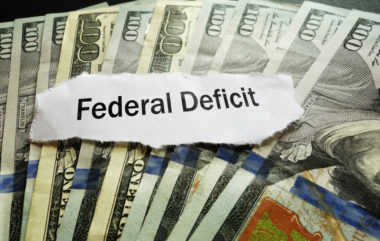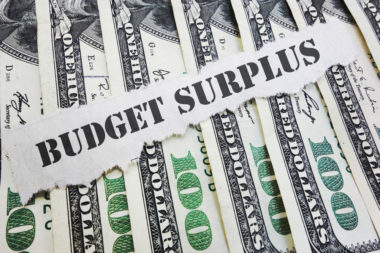What does avocado toast have to do with the current state of millennial homeownership?
Truthfully, not a whole lot: but one millionaire real estate mogul tried to compare the two in an interview he did with Australia’s 60 Minutes: “When I was trying to buy my first home, I wasn’t buying smashed avocado for $19 and four coffees at $4 each”.
Although the mogul was trying to make a comparison between the lifestyle habits of the past generation with the current’s, his analogy fell flat. How can massive student debt, rising rent costs, and expensive health insurance compare to a plate of $19 avocado toast (which is some expensive toast, I should add)?
The truth is, financial advice is far more complicated than people often give it credit. Many articles will tell you to “cut back on cups of coffee,” when in reality people are struggling to pay rent and mortgages. Simply cutting back on a once-a-week “treat yourself” item isn’t going to help you make ends-meet. Financial advice needs to be more succinct than that, and understanding the relationship your finances has on your health can help you navigate the money world a little better.
When it comes down to understanding how your finances and personal life intertwine, there are some patterns that can easily be identified. With some scientific studies, as well as true financial advice from professionals, how can people manage their finances while also staying happy and healthy?
The Cost of Living Healthy
The United States has an interesting history with food. Once industrialization allowed food to be more accessible, our country started a slow downward spiral of diminished quality and increased quantity. Now, food is more accessible, but food companies are also constantly finding a way to make food cheaper. However, this is done without regards to personal health.
Flavors can be artificially processed and replicated, carbs and sugars can be condensed into energy bars, and sweeteners can be added to any substance to make it more palatable. Over time, this has created a range of health concerns: from increased chronic illnesses to heart conditions.
However, this has also made living healthier considerably harder. Buying food that is “lean” or “organic” is extremely difficult and expensive; especially for those in food deserts, who have no way of storing fresh produce. Increasingly over time, it’s becoming difficult to be mindful of what you eat, and the health of the population is suffering for it.
Not only this, but fad diets and organic lifestyles are seen as a privilege of the rich. When the millionaire mogul gave his “advice” to millennials, he was suggesting that people who struggle with money should not indulge in trivial brunch items. But at what point can people care for themselves and not be seen as “wasting” money? Is self-care and being mindful of what you eat only a luxury for those that have been financially blessed?
The Health Cost of Poverty
On the other side of the coin, there is rising awareness that being poor is detrimental to your health. People who make less than $36,000/year are most likely working over 40 hours a week, have children, and live in dangerous areas. This means they have very little time to cook for themselves, exercise, and invest in their personal health. They are too busy trying to survive.
Some researchers even argue that poverty in itself is a disease, due to its relationship with stress. Those that make less than a livable wage are often strapped for money and stressing about paying bills, feeding their kids, and affording a roof over themselves. Our emotional and physical states are closely tied together, so our body reacts physically when we are mentally stressed. This leads to heart problems, diabetes, and even neurological conditions when it goes untreated.
To top it off, people living in poverty rarely have access to medical care, prolonging treatment of serious conditions and increasing their risk for deadly health problems. When it comes to offering health and financial advice, it’s important to realize this relationship and consider the difficulty it presents those living within the poverty bracket. Sometimes health simply can’t be a main priority.
However, it is possible to navigate through both. You can save up money and focus on your health. Here’s how you can start on the path to possibly improving both.
Financially-Minded Food Decisions
There are a few ways you can work on your diet and mental health, as well as your financial health. First off, avoid eating out at all times and start cooking at home.
It may be difficult to have access to fresh and healthy food, but the best option for many to stay healthy is to invest in eating the way it was intended: with whole and raw foods. No more granola bars, energy drinks, or fad diets that rely on supplements and substitutes. Instead, eat whole vegetables, fruits, and grains, and try to make as much food at home as possible. It might cost extra at first, and it might take more time, but you will save more money by not eating out and cooking instead.
Many cities are also building farm share programs that are aimed at providing fresh and home-grown foods to people that are willing to join the program. These are known as Community Supported Agriculture (CSA), and provide benefits to low-income farmers and the consumers. The idea goes: “a farmer offers a certain number of ‘shares’ to the public. Typically the share consists of a box of vegetables, but other farm products may be included. Interested consumers purchase a share (aka a ‘membership’ or a ‘subscription’) and in return receive a box (bag, basket) of seasonal produce each week throughout the farming season.” If you can’t afford a single share, it’s possible to also buy half or quarter shares in many areas.
During the off season, invest in frozen fruits and veggies to get your natural energy kick. You can also start an indoor garden — if you have the space — with any seeds you save and potentially have produce year round.
As for the other stuff — bread, meals, and snacks — try to cook everything at home. Avoid the overly processed foods and pre-prepared meals for fresher, more controlled ones, where you know what all is in the meal and there are no surprises. Cooking bread at home, baking, and creating large-dish meals might be intimidating at first, but over time you’ll get better and save money doing it. Plus, there are plenty of helpful videos and guides available for free online to walk you through the steps.
Outside of what you eat, there are plenty of other ways to focus on your health. One of the best ways is to ensure that you get at least eight hours of sleep (but no more than that) every night. Without sleep, our mind has trouble focusing and concentrating on tasks, which can be detrimental to our work. Additionally, it’s just unhealthy to not sleep an average of seven to eight hours every night.
Also, find ways to destress throughout your day to help diminish the effects over-exposure to stress can have on your physical body. Practicing breathing exercises, getting into yoga, or simply having a quiet moment can all help you unwind after a particularly bad day. It’s hard to imagine that these tips will improve your finances, but our daily lifestyles can have a major impact on our cognitive abilities. The more clear your mind, the better your performance will be at your job, and the more likely you will be able to advance, get a raise, or find a better paying career.
Although the millionaire mogul from Australia might have been making a smart quip at the millennial generation — equating economic struggle with poor choices in an expensive brunch item — it brings up the important question of how health and money are closely intertwined. It’s important to indulge yourself in things that make you feel good, but it’s also important to be prudent about what you eat and be mindful of how you go about your day.
Mental, physical, and financial health are all intertwined. It’s not impossible to work on them in tandem, but it might take some time and practice. If you decide to make the transition, or can afford to, your body will be grateful and your wallet might start looking better too.
Image source: https://www.pexels.com/





